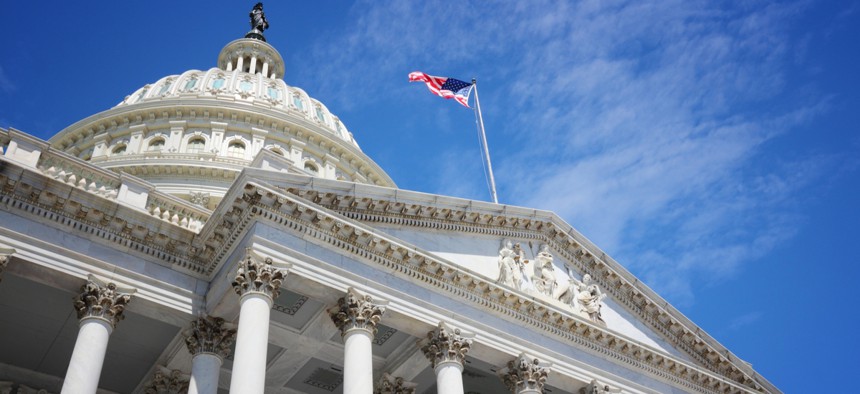House Approves Creation of a Select Panel to Oversee Pandemic-Related Spending and Response

Tupungato/Shutterstock.com
Critics have said the committee will be duplicative, but one transparency expert said that "overlapping oversight jurisdictions can be a good thing if managed correctly."
The House has approved a measure to create a panel to oversee the Trump administration’s response to the novel coronavirus, which includes its spending of approximately $3 trillion in relief funds.
The House voted 212-182, along party lines, to create a coronavirus select investigative subcommittee within the House Oversight and Reform Committee that House Majority Whip Rep. Jim Clyburn, D-S.C., will lead. The new panel will start with a $2 million budget and have 12 members. House Speaker Nancy Pelosi, D-Calif., will pick seven and House Republican Leader Kevin McCarthy, R-Calif., will pick five.
The panel will examine the “efficiency, effectiveness, equity and transparency of the use of taxpayer funds and relief programs to address the coronavirus crisis;” coronavirus-related fraud; application of federal laws to the pandemic response; federal preparation for pandemics; the economic impact of COVID-19; health disparities; whistleblower protections; executive branch communications and cooperation with investigative bodies; and more.
The committee will have subpoena power and is “authorized and directed” to issue a report to the full House on its findings. It can also produce interim reports, if the members desire, according to the resolution’s text.
Some Republicans argued the new panel is unnecessary because there are several other investigative bodies tasked with pandemic oversight. The $2.2 trillion CARES Act established a new position of Special Inspector General for Pandemic Recovery, an independent Pandemic Response Accountability Committee, and a five-member congressional commission. Additionally, Sen. Mike Crapo, R-Idaho, is leading the Senate’s stimulus oversight and the Government Accountability Office will have started at least 30 reviews and audits related to the CARES Act by the end of the month, Politico reported on Monday.
The select panel is “just a continuation of the attack that the Democrats have had on the president for the past four years,” said Rep. Jim Jordan, R-Ohio, ranking member of the House Oversight and Reform Committee, on the House floor on Thursday.
Democrats disagreed. “This should be a bipartisan effort,” said Rep. Carolyn Maloney, D-N.Y. before the House. “I encourage all of my colleagues to come together to protect the interests of American taxpayers and to promote the most efficient, effective, equitable and transparent mobilization in history in response to this deadly crisis.”
During a webinar with Meritalk on Thursday, Rep. Gerry Connolly, D-Va., chairman of the government operations subcommittee of the House Oversight and Reform Committee, said “accountability has been one of the victims of this pandemic.” He also noted the new panel is not “a substitute for regular oversight that has to be restored and so making that happen is certainly going to be one of my top priorities.”
The watchdog Project on Government Oversight, which has been a strong advocate for transparency and oversight during the pandemic, also stressed the need for this additional select panel.
"It's encouraging to see Congress focused on ensuring it can conduct strong oversight over the stimulus funds and the federal government's response to the pandemic,” said Liz Hempowicz, POGO public policy director. “While the move has drawn criticism from Republicans that such a committee is duplicative, overlapping oversight jurisdictions can be a good thing if managed correctly with strong communication between the various committees conducting oversight over government spending and actions in response to coronavirus.”
She added: “The government has already allocated trillions of dollars, so we need lots of eyes on this. I just hope that the administration cooperates and that Congress is aggressive in pursuing the information it needs to hold the executive branch accountable.”
In addition to experts and congressional members emphasizing the need for accountability and transparency, the Office of Management and Budget published a memo on April 10 with guidelines for agencies to follow as they ramp up spending through various programs under the three recent coronavirus relief bills. This was a few weeks after the president signaled in a signing statement on the CARES Act that he might not implement some of the transparency provisions.
NEXT STORY: FCW Insider: April 27






